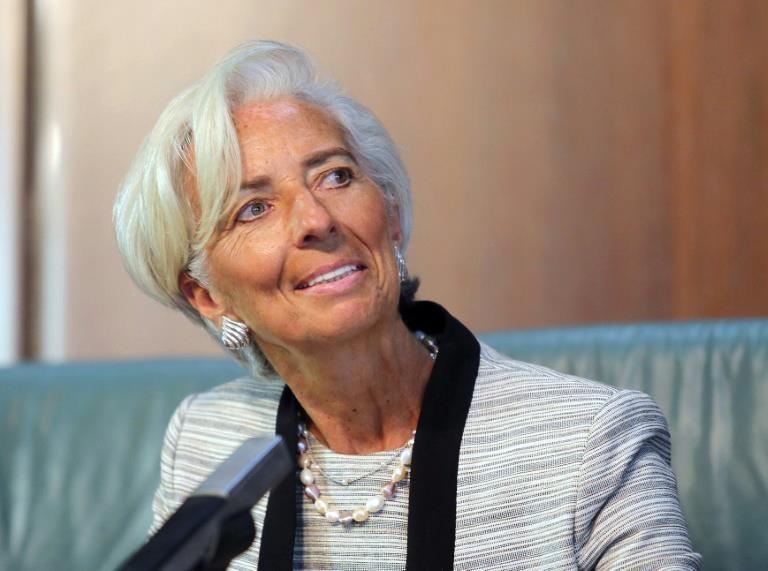
No IMF programme needed for Nigeria: Lagarde
"Let me be very clear: I'm not here nor is my team here to negotiate a loan with conditionalities, we're not programming negotiations," said IMF managing director Christine Lagarde.
"Frankly, given the determination and resilience displayed by the presidency and his team, I don't see why an IMF programme is going to be needed," she told reporters in Abuja.
Lagarde was speaking after meeting President Muhammadu Buhari on a four-day visit that will also see her hold talks with the central bank governor and visit neighbouring Cameroon.
Nigeria, Africa's number one oil producer, has seen revenues dive over the last year because of the fall in global crude prices, causing a cash crunch that has forced it to tighten spending.
The naira currency has also slumped and GDP growth stalled to under 3.0 percent, while inflation is nudging 10 percent.
Lagarde described the talks as "excellent" and said they touched on "the challenges ahead stemming from the oil price reduction" and the need to find different revenue sources.
They also discussed "the necessity to apply fiscal discipline and the need to respond to the population's needs, improving the competitiveness of Nigeria and focusing on the short-term fiscal situation".
Buhari has made reviving the flagging economy one of his key priorities alongside cutting endemic corruption and government waste, and improving transparency and accountability.
Lagarde said they were "very ambitious goals that need to be delivered upon".
- Trade concern -
Nigeria last month unveiled a 6.08-trillion-naira (about $30-billion, 27-billion-euro) budget, increasing investment on capital expenditure to stimulate growth and lower dependence on crude exports.
Lagarde said it was not her place to "approve or comment on the budget" but she disclosed the IMF would undertake a review and audit from next week "to really assess whether the financing is in place".
It would also look at "whether the debt is sustainable, borrowing costs are sensible and what must be put in place in order to address the challenges going forward".
Analysts say the commercial health of the region is a priority for Lagarde's trip, with Nigeria struggling to adapt to rock-bottom oil prices and diversify its economy.
She is due to end her trip by meeting finance ministers from the six member countries of the Economic and Monetary Community of Central Africa (CEMAC), delivering a speech on January 8.
"There was mention of the reform agenda, what Nigeria might do to cope with this period of oil price weakness, but also the policy response from Nigeria and the impact on surrounding countries," said Razia Khan, Africa economist at Standard Chartered Bank in London.
"One of the ways that Nigeria has chosen to deal with the pressures of weaker oil prices is control the demand of imports, by restricting the foreign exchange market," she told AFP.
"That has caused an impact on trade with neighbouring countries that will be a concern not just to Nigeria but also some of those countries that are very reliant on Nigeria."

Legal Disclaimer:
MENAFN provides the
information “as is” without warranty of any kind. We do not accept
any responsibility or liability for the accuracy, content, images,
videos, licenses, completeness, legality, or reliability of the information
contained in this article. If you have any complaints or copyright
issues related to this article, kindly contact the provider above.

















Comments
No comment